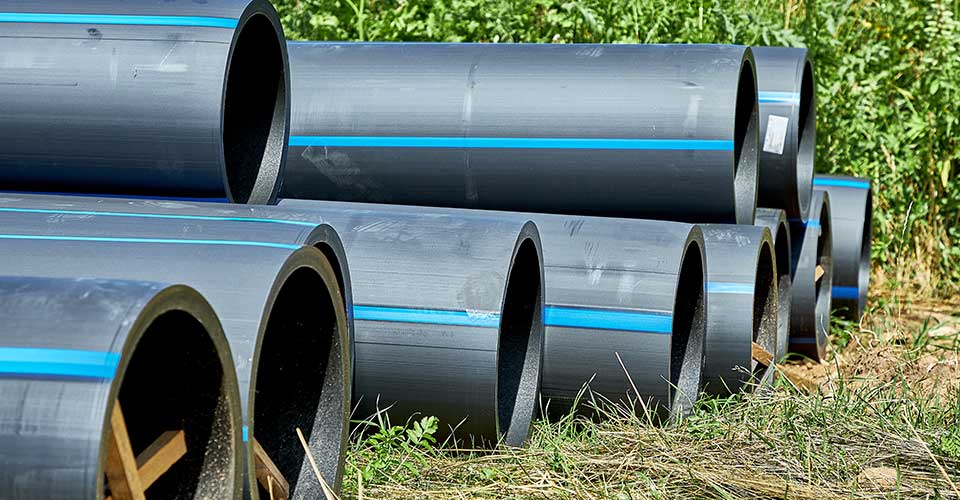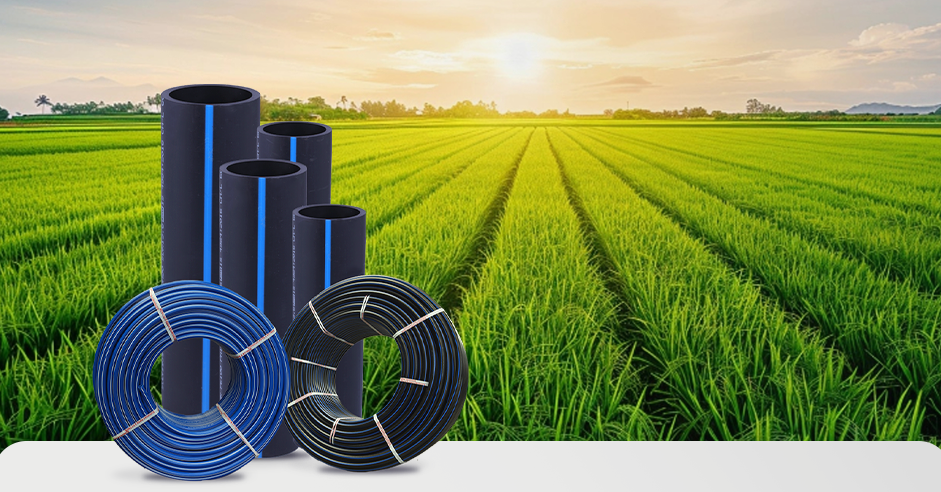Recognizing the Key Benefits of HDPE Pipe for Water and Wastewater Management
Making use of HDPE pipeline in water and wastewater monitoring provides countless benefits that merit consideration. Its phenomenal resilience and lengthy life-span make it a preferred choice for many tasks. Furthermore, the product's resistance to rust and chemical damages improves its integrity in numerous atmospheres. Nonetheless, the benefits expand past simply long life and resistance. Discovering its cost-effectiveness and ecological influence exposes a lot more compelling factors for its extensive fostering in modern-day facilities
Exceptional Durability and Longevity

HDPE pipeline attracts attention for its extraordinary resilience and long life, making it a recommended option in water monitoring systems. Built from high-density polyethylene, these pipes can withstand considerable pressure and stress and anxiety, guaranteeing trusted performance in time. Their durable nature permits them to sustain extreme ecological problems, including temperature variations and dirt movements, which can create various other materials to stop working.
The life expectancy of HDPE pipes typically surpasses 50 years, offering an economical service for communities and sectors alike. Furthermore, the material's lightweight properties simplify installment, decreasing labor prices and durations. This toughness lessens the demand for frequent fixings or replacements, even more enhancing its financial allure.
In water administration applications, the dependability of HDPE pipelines implies fewer disruptions and boosted solution continuity, making them integral to sustainable facilities growth. The combination of resilience and longevity strengthens HDPE's function as a cornerstone in efficient water monitoring options.

Resistance to Deterioration and Chemical Damage
While numerous materials catch deterioration and chemical damage with time, HDPE pipes display exceptional resistance, making them ideal for numerous water administration applications. This resilience comes from the molecular framework of high-density polyethylene, which is inherently non-reactive and does not corrode like metals or degrade from direct exposure to extreme chemicals. Because of this, HDPE is highly effective in settings with hostile materials, such as wastewater systems that may include acids, bases, and organic solvents.
Additionally, HDPE pipes can hold up against environmental variables such as soil acidity and saline conditions, even more boosting their suitability for diverse applications (custom hdpe pipe manufacturing Midland TX). Their capability to maintain structural integrity in time decreases the threat of leakages and failings, which is essential in ensuring the safety and dependability of water circulation and wastewater monitoring systems. Subsequently, the resistance to rust and chemical damage markedly adds to the total effectiveness and durability of HDPE piping services
Cost-Effectiveness and Financial Advantages
When taking into consideration the monetary ramifications of water administration systems, the cost-effectiveness of HDPE pipelines comes to be apparent. These pipelines offer lower setup and upkeep expenses contrasted to standard materials like steel or concrete. water pipe cleaning services Their light-weight nature simplifies transport and installment, causing lowered labor expenses. Additionally, HDPE pipelines exhibit a long lifespan, typically going beyond 50 years, which converts to fewer substitutes and long-lasting savings.
The resistance of HDPE to rust and chemical damages minimizes the requirement for expensive repair services and replacements. The pipes also support effective water flow, lowering energy expenses related to pumping systems. By reducing leakages and water loss, HDPE pipelines add to significant financial benefits for districts and sectors alike. Generally, the first investment in HDPE piping can produce substantial pvc adapter financial returns over the life expectancy of the water management system, making it a sensible choice for sustainable infrastructure growth.
Ecological Sustainability and Lowered Influence

Versatility and Adaptability in Installation
Since of their special properties, HDPE pipes offer impressive flexibility and versatility in installation, making them ideal for a wide variety of applications. Their lightweight nature enables for much easier handling and transportation, minimizing labor expenses and installation time. HDPE pipelines can be curved and formed to fit different terrains and project demands, which is specifically useful in testing settings.
Additionally, their resistance to corrosion and chemical damage permits installation in diverse setups without the demand for specialized safety coverings. The capability to fuse joints produces a continual, leak-free system, improving the general integrity and dependability of the installment. HDPE's flexibility also suits ground motion, reducing the danger of damages in locations prone to shifting dirt. Generally, these qualities make HDPE pipes not only versatile but additionally a preferred choice for water and wastewater administration systems.
Frequently Asked Inquiries
How Does HDPE Pipeline Compare to PVC in Water Management Applications?
HDPE pipe offers remarkable versatility, resistance to rust, and durability compared to PVC. Its lighter weight facilitates much easier installation, while its long life-span lowers substitute prices, making HDPE a preferred selection in water management applications.
What Is the Life Expectancy of HDPE Piping Under Normal Conditions?
Under typical problems, HDPE pipes can have a lifespan ranging from 50 to 100 years. Their sturdiness and resistance to deterioration add to their long-lasting efficiency in various applications, making read them a reputable option for facilities.
Are HDPE Pipeline Recyclable After Their Life Span?
Yes, HDPE pipes are recyclable after their life span. Pipe Manufacturing Midland TX. They can be refined and repurposed into new items, considerably lowering environmental influence and promoting sustainability within the sector, making them an environment-friendly option for piping solutions
What Is the Setup Process for HDPE Piping?
The installation process for HDPE pipes entails website prep work, trenching, pipeline fusion or mechanical signing up with, backfilling, and stress testing. Correct strategies assure a durable and effective system for transferring water and wastewater successfully.
Can HDPE Piping Be Made Use Of for Both Potable and Non-Potable Water Solutions?
Yes, HDPE pipelines can be made use of for both potable and non-potable water supply. Their adaptability, longevity, and resistance to corrosion make them ideal for various applications, making certain safe and effective transportation of water in different contexts.